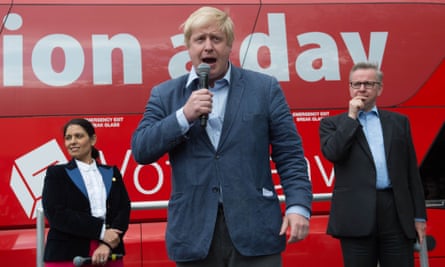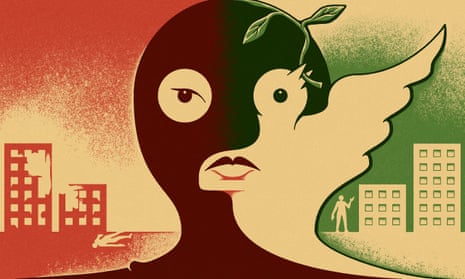On the news channels on Thursday, they were switching back and forth between updates on the Westminster attacks and live coverage of the funeral of Martin McGuinness. Often those juxtapositions, those split-screen moments, are jarring. Not this time.
For the murder and mayhem unleashed in Westminster and the life of McGuinness were two aspects of a timeless story. They were a reminder of the pain terror inflicts, and the precious fragility of any and every effort to make it stop. McGuinness’s life was so complicated, and the response to his death so fraught, because it encompassed both.
Start with the pain, which is never a surprise but strikes afresh with each new outrage. Consider the arbitrariness that can end the life of a man from faraway Utah, in London to celebrate his silver wedding, or a college worker collecting her kids from school or a retired window cleaner off to a visit a friend in hospital. The sense of duty that propels an unarmed policeman towards an attacker carrying a knife. The thought that that policeman’s five-year-old daughter will now grow up without a father, a fact that will shape her life, its impact felt every day, many decades into the future.
And meanwhile, over in Derry, images from a church, images that would once have made no sense, at least not under a single roof. There was the coffin, draped in the tricolour of Ireland, containing the body of the former IRA commander in the city. Just a few steps away stood the current leader of the Democratic Unionist party, the successor to the Rev Ian Paisley. The DUP leader was there to pay her respects to the former IRA man.
Anyone old enough to remember life on these islands before the 1990s can only feel astonishment at such a sight. These were once mortal enemies, with an emphasis on the mortal. In the 1970s, every year but one saw the number of British deaths caused by terrorism top the 100 mark: in 1972, the figure reached 353. In the 80s and early 90s, the annual death toll hovered between 50 and 100. And almost all of those deaths were in Northern Ireland.
Strange to recall it now, but the persistence of this lethal conflict became part of the mental furniture: there, but not something you thought about too often. A bombing or shooting in Belfast was a routine news story. Bomb scares at London railway stations or shops were regular occurrences, an inconvenience to be got around.
In the first stage of his life, McGuinness was up to his neck in this misery. His reputation was for clear-eyed, unflinching brutality. “We should not forget how effective he was as the head of a ruthless killing machine,” says Mick Fealty, who runs the much-admired Slugger O’Toole blog. He adds that McGuinness’s acts of violence, for instance targeting Protestant-owned businesses in Derry, drove large parts of that community out of their home town. Given all that, one can hardly blame Norman Tebbit – whose wife was left paralysed by the Brighton bombing of 1984 – for hoping that McGuinness will spend eternity burning in “a particularly hot and unpleasant corner of hell”.
But McGuinness then applied that same single-minded, disciplined focus to the task of peacemaking. He was a patient, creative negotiator, who deserves much credit for the Good Friday agreement. In the years since that accord was signed, the UK terrorism annual death toll has hovered close to zero, and there it has remained – with the gruesome exception of 2005, the year of 7/7.
And this is what makes McGuinness’s life so complicated to assess. He was a core part of both the problem and the solution. His record of violence was not erased by the shift he made, but our view of it is inevitably altered.
When I tweeted praise for his peacemaking efforts, someone replied that they preferred peacemakers who hadn’t first been makers of war. Morally, that has to be right – and yet it cannot be denied that it is those who once wielded swords who make the most effective advocates for ploughshares.
In 2002, I found myself in the chair at a two-day private meeting, organised by the Guardian, which brought those who had forged the Good Friday agreement face to face with Israeli and Palestinian leaders longing to resolve their own conflict. The most memorable session came when McGuinness sat alongside the loyalist leader David Ervine. The latter explained that each of them had once been hellbent on killing the other. Now they were determined that their children would grow up with better dreams.
They held the room rapt. Much as we might wish it were otherwise, their words had a greater impact than those spoken by the Ulster Unionist or SDLP leaders who had always eschewed violence. The explanation was partly practical: the Israelis and Palestinians around the table knew that no peace between their peoples would ever hold unless it included the men of violence. But something more human was at work too: the sense that, because the likes of Ervine and McGuinness had seen into, even fallen into, the abyss, their determination to pull back from it was especially intense. And, as Bill Clinton captured in a masterful eulogy to McGuinness, we cannot help but be inspired by stories of men who abandon war to pursue peace. It gives us hope.
Taken together, this week’s events in Westminster and Derry are a reminder of how necessary, rare and delicate a peace accord is. When you have one, you hold it carefully and with both hands. Yet this basic wisdom seems lost on our current leaders.
Before last year’s referendum, plenty of voices warned that Brexit threatened the fragile equilibrium that has prevailed in Northern Ireland for nearly two decades. The genius of the SDLP leader John Hume had been to see that a European dimension could remove much of the sting of the conflict: after all, what need for a hard border separating the Republic and the north when both were in the European Union, trading as partners in a single market?

Now all that is to be tipped over. True, the common travel area between north and south exists independent of the EU, and should survive. But even without the construction of a hard border – all barbed wire and “Papers, please” – Brexit, and especially a UK exit from the customs union, destabilises a situation that needs calm above all.
Perhaps that’s no surprise. Recall that the arch-Brexiteer Michael Gove was a noisy, inconsolable foe of the peacemakers of Northern Ireland. He authored a denunciation of the Good Friday agreement in 2000, two years after it had been signed. Anticipating Donald Trump, he called the referendum that had overwhelmingly backed it “rigged”. The pamphlet’s third chapter was titled The Case Against ‘The Peace Process’.
No wonder, then, that Gove and his fellow members of what is still, misleadingly, called the Conservative and Unionist party are ready to yank out a plank from an infinitely complex, frail structure assembled with such patience two decades ago. Just as they don’t mind risking a Scottish vote that would break up the UK, so they are ready to unravel the ties that have bound Northern Ireland together in peace.
Like the rest of us, they have seen again this week the pain that terrorism can cause. They know what has kept the lid on the UK’s most lethal source of that pain – and yet they think nothing of kicking it away. In the onward march to Brexit, there is nothing that gives them pause.
- This article was amended on 27 March 2017. Martin McGuinness’s funeral took place in a church, not a cathedral, as stated in an earlier version.

